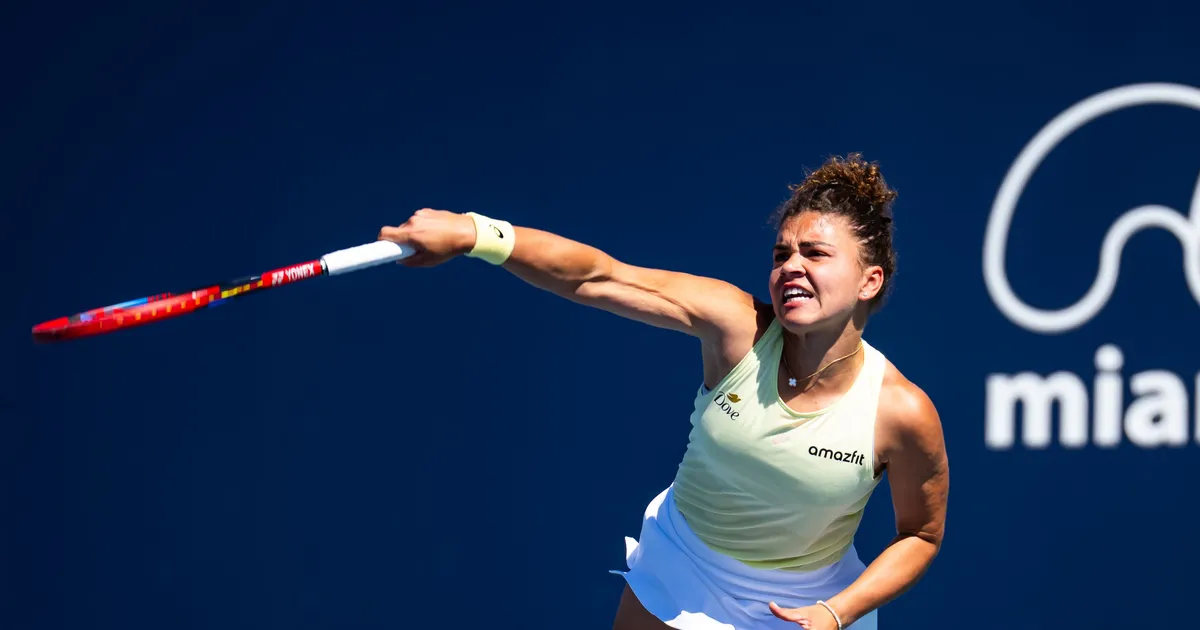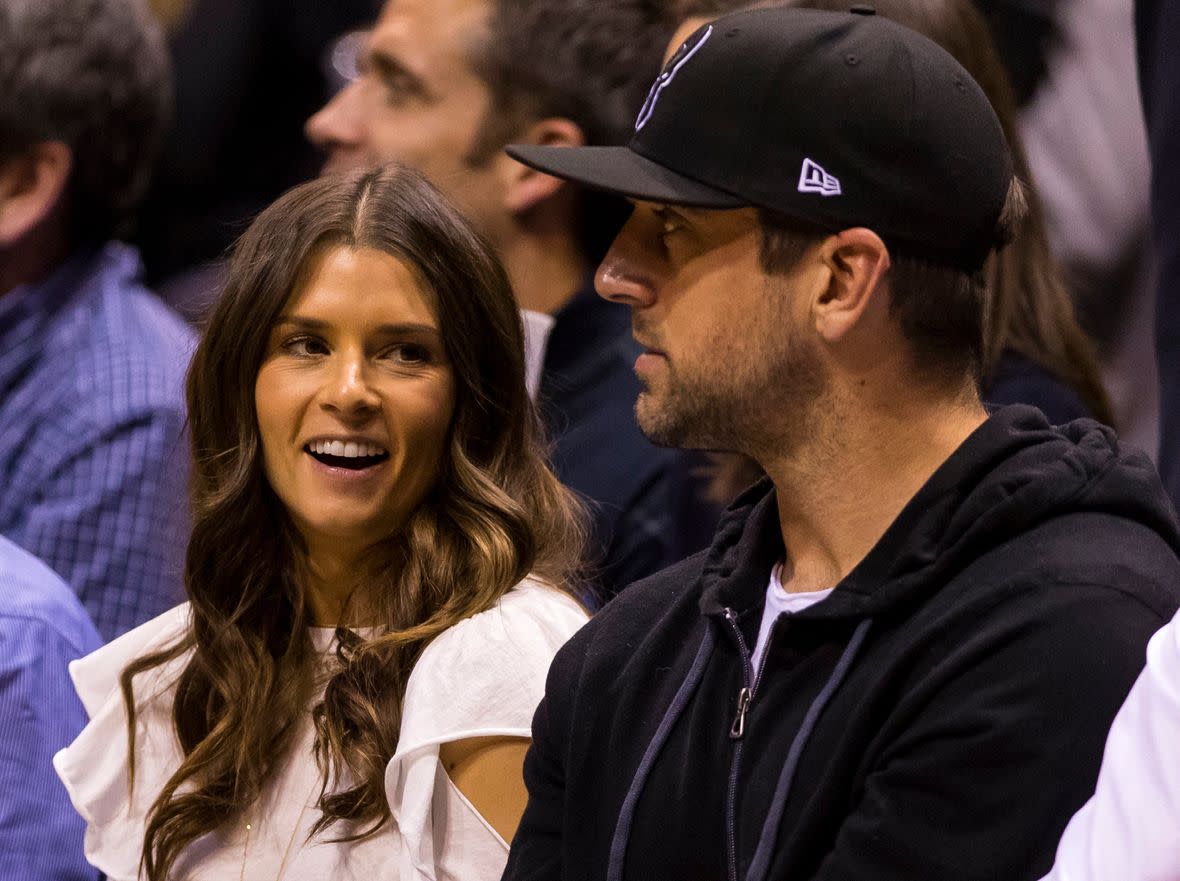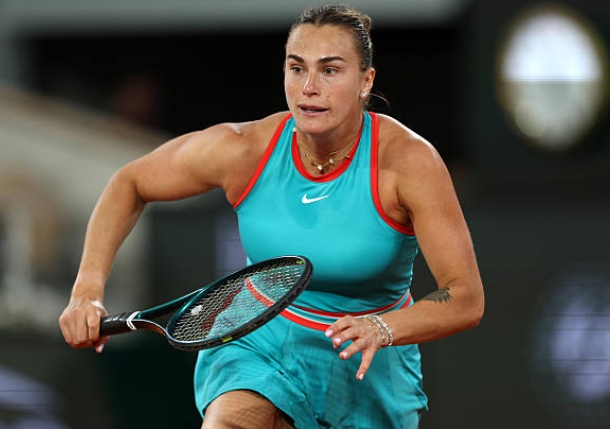A Moment of Tension, A Gesture of Grace
The tennis world thrives on rivalries, grit, and brilliance under pressure. But sometimes, the most unforgettable stories don’t unfold during match point — they bloom quietly, away from the public eye. The recent revelation of Coco Gauff’s heartfelt apology to Alexandra Eala has left fans stunned, intrigued, and emotionally invested in what seemed to be a simple tour stop in Rome. But as details emerge, it’s clear: this was more than just a post-match handshake. It was a moment of vulnerability, growth, and unspoken respect between two of the sport’s most promising young stars.
What Sparked the Drama?
The setting was the Italian Open, a critical WTA 1000 event where Gauff and Eala found themselves in the same quarter of the draw. While both players were focused on their performance, a tense moment during a practice session raised eyebrows. According to several onlookers, Gauff unintentionally disrupted Eala’s rhythm by stepping onto her adjacent court during a point — a common but delicate faux pas among players during high-stakes preparation.
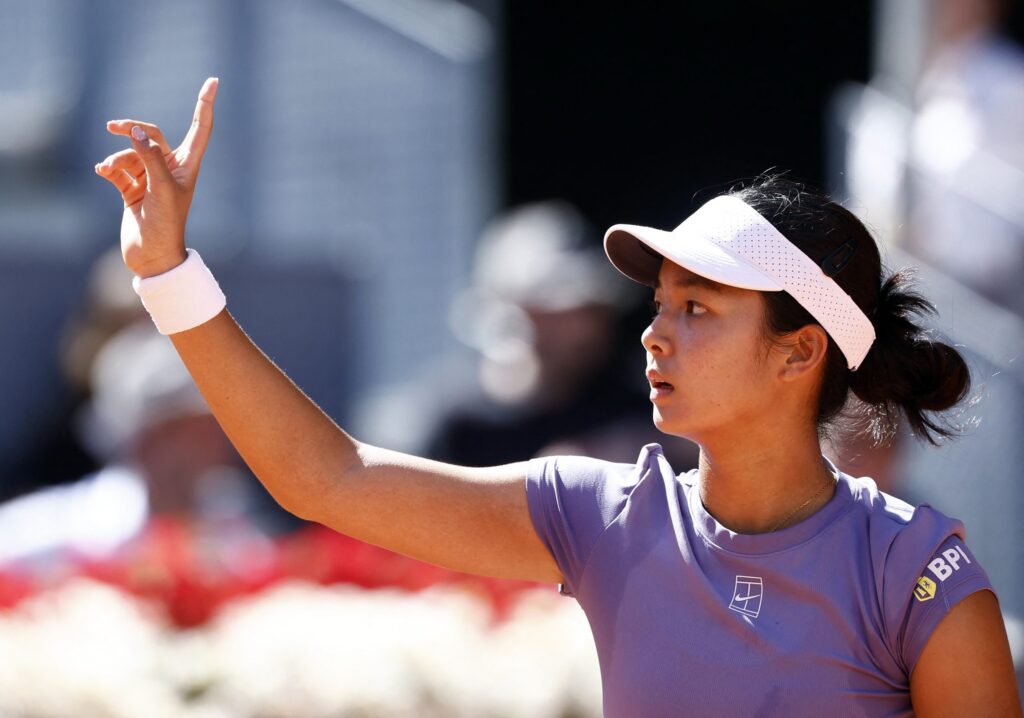
Eala’s frustration was visible. The Filipino teen, known for her poise and discipline, gave Gauff a quick but stern glance. It was a fleeting moment, but social media caught fire.
Clips circulated online, comments poured in, and before either player hit their first ball in the main draw, fans were already picking sides. Was it a careless move from the American star? Or an overreaction by the young Filipina? The incident went viral in hours, but what happened afterward was what truly captivated the tennis world.
Gauff Breaks the Silence: A Private Apology Made Public
In a candid behind-the-scenes clip released by WTA Media after her second-round win, Coco Gauff addressed the incident during a post-match interview.
“I’ve already spoken to Alex,” Gauff said, visibly composed but emotional. “I didn’t mean to throw her off during practice. That’s on me. She’s a rising star and deserves respect. I told her I was sorry — not just for the moment, but for anything that might’ve made her feel unseen.”
According to sources close to Eala’s team, the apology wasn’t just words. Gauff took the time to meet Eala privately in the players’ lounge later that evening. The two reportedly spoke for nearly 20 minutes — a conversation filled with honesty, mutual admiration, and emotional maturity that’s rarely seen in such young athletes.
Fans React: #GauffEala Trends Worldwide
Once the story broke, the internet did what it does best — amplify. Within hours, #GauffEala and #ApologyWithGrace trended across X (formerly Twitter), Instagram Reels, and TikTok. Tennis fans from all over the world, including the Philippines and the United States, praised Gauff’s accountability and Eala’s quiet strength.
One fan commented:
“These two are the future of tennis. This is how champions act — with humility and heart.”
Another wrote:
“Coco didn’t owe the world an apology, but she gave one anyway. That’s leadership.”
Social engagement soared as influencers, commentators, and former players weighed in. Even Billie Jean King reposted the clip with the caption: “This is the sportsmanship we need to see more of. Bravo, Coco and Alex.”
The Eala Perspective: Grace Under Pressure
Alexandra Eala didn’t rush to the media after the practice court incident — a choice that only deepened her fans’ respect. But once Gauff’s apology was public, Eala responded on Instagram Stories with a simple, heartfelt message:
“Thank you @cocogauff for your words. All good. Let’s keep pushing each other to be better.”
That single message spoke volumes. No drama. No ego. Just mutual respect between two competitors learning and growing on one of tennis’ biggest stages.
Eala, who has long been compared to early-career Maria Sharapova due to her poise and discipline, showed once again why she is more than hype — she’s a future force who handles adversity with elegance.
More Than a Moment: A Turning Point for Women’s Tennis?
This story isn’t just about an apology — it’s about what it represents.
Women’s tennis has always had its share of fierce rivalries and iconic personalities, but the Gauff-Eala incident added a new layer of narrative: a powerful reminder that emotional intelligence and humility are just as compelling as a 130-kmph forehand.
In an age where athletes are often under scrutiny for every facial expression or social media post, Gauff and Eala have reminded us that grace is still possible, even in the heat of competition.
Their moment of tension turned into a symbol of growth — not just for them, but for what the next generation of women’s tennis can aspire to.
A Look Ahead: Will They Meet Again?
As both Gauff and Eala progress through the clay season, fans are eager for more — not just of the drama, but of the brilliance these two bring to the court. Their styles couldn’t be more different: Gauff’s explosive athleticism and aggressive defense vs. Eala’s fluid shot-making and court craft.
A potential third-round clash in Rome was narrowly avoided due to Eala’s tough loss in the opener. But if the tennis gods align, we could see them collide in Paris or even later in the year at the US Open.
One thing is clear: a Gauff vs. Eala match now carries extra emotional weight — not out of rivalry, but out of mutual growth, redemption, and the ability to inspire.
Why This Story Matters
In the fast-moving world of professional tennis, where points, rankings, and rivalries dominate headlines, it’s easy to forget that the players are human beings — young ones, at that. Coco Gauff is just 21. Alexandra Eala, 19. They’re navigating fame, pressure, media scrutiny, and the relentless demands of competition all while trying to figure out who they are off the court.
This story — the apology, the humility, the forgiveness — matters because it reminds us that being a champion isn’t just about trophies. It’s about how you treat people in the moments when nobody’s watching… and how you own your mistakes when the world is watching.
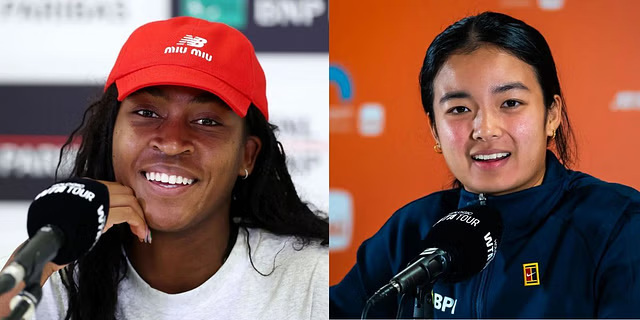
Final Thoughts: A Masterclass in Character
As tennis fans, we often chase narratives of drama, downfall, or dominance. But every once in a while, we get something rare — a masterclass in character.
Coco Gauff’s apology to Alexandra Eala, and the way both players handled the situation, gives us something richer than clickbait. It gives us a glimpse into the kind of legacy these two might leave behind.
Not just as Grand Slam winners or world No. 1s… but as women who elevate the game with their hearts, as well as their racquets.
